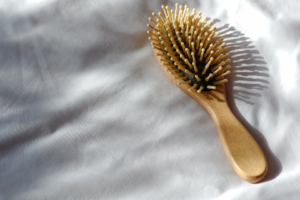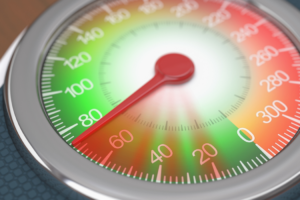Is Social Eating Possible after Bariatric Surgery?
What to eat after bariatric surgery is an important question for anyone who has recently had gastric bypass or sleeve gastrectomy. The enjoyment of food has always been an integral part of our culture and it is important on a spiritual, physical and emotional level. We celebrate special occasions with food; when we are with friends, we often share a meal, we express our identity through our food choices, we try to eat away our feelings, we choose what we eat based on our ideological principles, etc. In this article, we will take a look at eating after bariatric surgery particularly from a social point of view – for example, eating out with family, friends or acquaintances.
Changes after the Surgery
Significant lifestyle changes are required after bariatric surgery; the main changes, of course, involve eating and eating habits. Bariatric surgery reduces the size of the stomach which means that the patient needs considerably smaller portions after surgery. Fatty and hard to digest foods are also not good for a reduced stomach. When we are in good company, we tend to eat more without even noticing than we normally would alone, and, for that reason, eating out with friends and family after bariatric surgery requires special attention.
Where to Eat
Before going out to eat after bariatric surgery, look at the restaurant’s menu on their website or social media accounts. Check the menu for foods that would be suitable for you. After bariatric surgery even a high-protein appetiser would be enough for a meal. You can also order a meal and ask to take the leftovers home with you. Restaurants that allow you to customise your own meals by, for example, letting you replace potatoes with a salad or rice with vegetables, are also ideal. Think about these options as you are looking at the menu and choose restaurants that offer smaller portions or take your dietary needs into consideration.
What to Eat
It is important to eat a balanced diet so that every meal should contain proteins, dietary fibre and essential fatty acids. Lean protein sources such as tofu, eggs, seafood, grilled chicken or baked fish are great after bariatric surgery. Fresh salads or steamed vegetables make for a fantastic side dish. Ask for the salad and the dressing to be served separately – that way you can control the amount of dressing. Recommended dressings are salsa, vinegar or mustard. Choose tomato sauces over cream sauces.
What to Avoid
Avoid refined and breaded meat products and creamy sauces that are high in calories. If possible, choose vegetables over starchy foods, for example try to avoid chips, boiled potatoes, rice, wheat products, maize and pasta. Do not consume high-calorie drinks – soft drinks, juices, sports drinks, iced tea or alcohol. Potato crisps, corn crisps and other similar snacks are foods that can make you slip up so try to choose lean protein sources instead.
How to Eat
After bariatric surgery you have to follow a special diet: During the first two weeks you will only consume liquid foods, after that on third and fourth week you can transition into eating soft foods. Over time you will be able to eat and digest foods with different textures and ingredients again. Therefore, life after bariatric surgery is not that much different and you can soon eat almost anything. There are only three important rules you must follow: eat smaller portions, eat as slowly as possible and chew well. When you are at a party, find a place that is farther away from the buffet table so you do not accidentally overeat. You should also look at everything that is being offered before you choose your food – since you can only eat a little bit, make well-thought-out choices. When you feel full, stop eating immediately.
7 Recommendations for Eating After Bariatric Surgery
- Choose a restaurant where you can customise your own meal
Look at menus beforehand and choose a place that offers an appetiser you like or where you can personalise your own meal with suitable ingredients.
- Drink water
Sip water while you are on your way to the restaurant and waiting for your food. That way you will not confuse thirst with hunger.
- Protein is a priority
Opt for eggs or chicken, beef and fish that are grilled, steamed, roasted, baked or boiled.
- Order first
When you hear what others are ordering, it might be difficult to stick to your original plan. Therefore, order your food first.
- Do not compare your portion size with that of others
There is no point in analysing how much others are eating because after bariatric surgery your stomach is 60–80% smaller than theirs.
- Request to take the leftovers home
If you order a full meal, you will probably end up with a lot of leftovers – ask for a take-out container and have it for lunch the next day.
- Do not forget that company is more important than eating
Enjoy the company and chat away – the more you talk, the slower you eat.
Eating and choosing the right foods needs more attention the first few months after bariatric surgery. Soon, however, new healthy eating habits will become an integral part of your daily routine. New eating habits will also result in significant weight loss, enable you to be more active and feel better. Every small step in the right direction after bariatric surgery is part of an exciting journey to better health!









